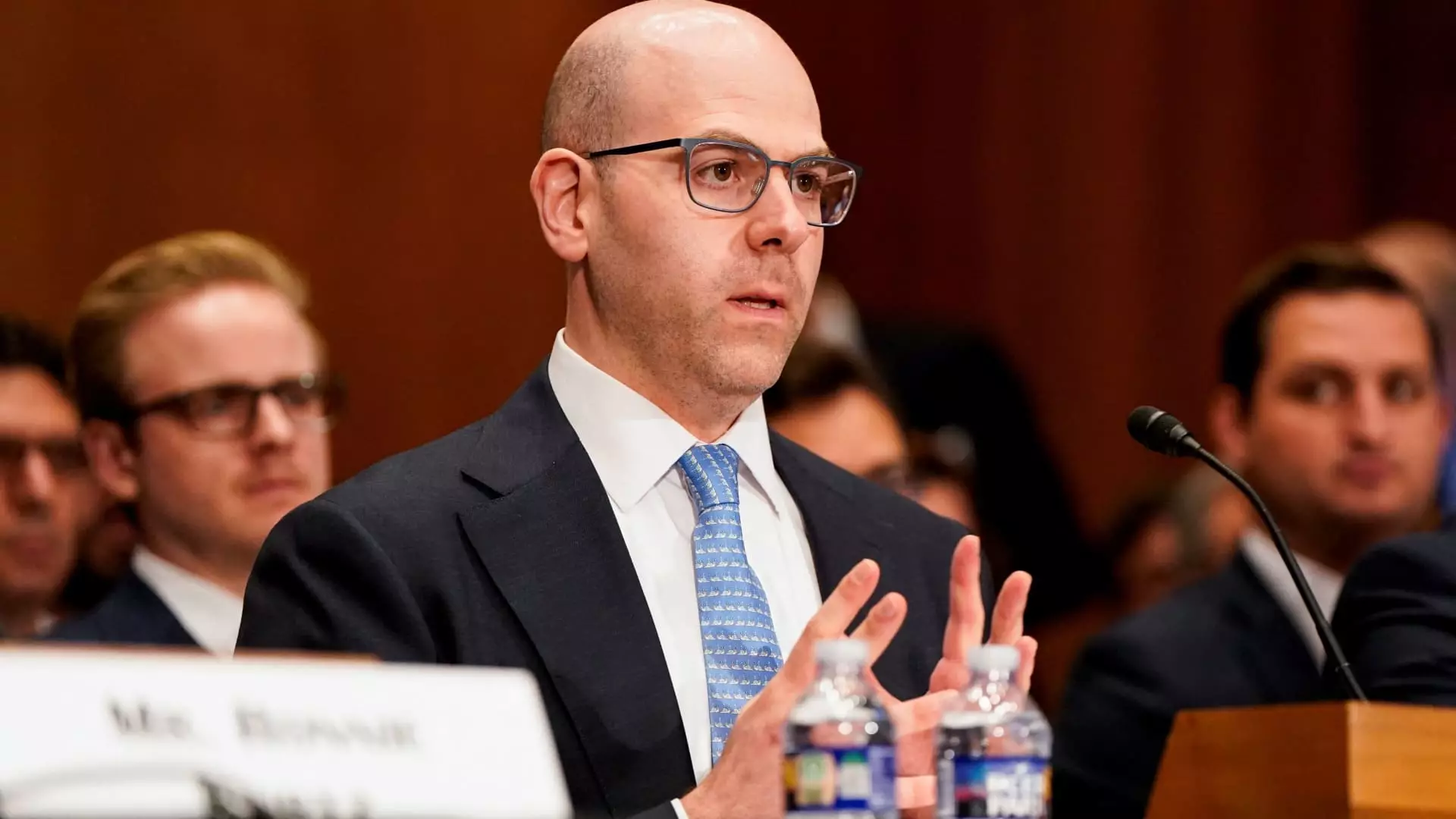In recent months, the narrative surrounding the Federal Reserve’s independence has come under intense scrutiny. Official statements suggest that Fed members operate free from political pressure, but a closer examination reveals a different reality. The recent comments by Governor Stephen Miran illustrate a troubling trend: even when claiming to act independently, Fed officials are subtly influenced by the political environment and the pressure exerted—whether overt or covert—by the executive branch. Miran’s assertion that he made his decision on interest rates *alone* and *without* political influence is not only naïve but also dismissive of the broader context in which these decisions are made.
What becomes clear is that the concept of an autonomous central bank is increasingly a facade. The Trump administration’s vocal criticisms and overt attempts to sway Fed policy highlight the erosion of what used to be considered a hard-won institutional norm. This pattern threatens to undermine the Fed’s credibility, casting doubt on its ability to serve as an independent arbiter of monetary policy. If officials are constantly navigating between economic data and political realpolitik, then their independence is essentially cosmetic. Misinforming the public about this independence only exacerbates cynicism, risking a loss of faith that is vital for the stability of the financial system.
Political Interference: A Disservice to Democracy and Economy
The Trump administration’s relationship with the Fed exemplifies how politicized monetary policy has become. The president’s open admonitions and name-calling—calling Chair Jerome Powell “Too Late” and publicly pressuring for rate cuts—are unprecedented in modern history. These tactics diminish trust not only in the Fed but also in the broader economic governance structures, as they blur the line between economic expertise and political favoritism. The independence of the Fed is supposed to shield monetary policy from the immediate whims of political actors, ensuring that decisions are made based on data, inflation, employment figures, and long-term economic health.
However, the current atmosphere suggests a weakening of that shield. The repeated interference and calls for specific policy outcomes threaten to transform the Fed from an independent institution into an extension of political will. This is dangerous because it invites short-sighted policy decisions driven by political incentives rather than economic stability. For the American public and global markets alike, this erodes the very foundation of trust in the institution’s ability to manage the economy effectively and fairly.
The Impact on Fed Credibility and Policy Outcomes
Miran’s comments about not discussing his voting intentions with the President and his belief that the Fed can remain independent even amid political pressure might seem reassuring on the surface. Nevertheless, such assurances overlook the silent yet persistent influence that political narratives impose on policy makers. When officials like Miran publicly state their independence amidst a backdrop of overt political pressure, they inadvertently underscore the fragility of the institution’s status. Their words become performances, carefully calibrated to maintain public confidence but belied by the underlying political currents that flow beneath.
Furthermore, the internal dynamics of the Fed, including the ideological divides among members with varying outlooks on rates and inflation, complicate the narrative of neutrality. Miran’s differing views on interest rates and economic long-term rates reveal a divergence that complicates consensus-building. While such differences are healthy in a functioning democracy, they are often overshadowed by the overarching political pressure that seeks to impose a unified voice—whether through threats, public pressure, or strategic appointments. This environment discourages honest debates among policymakers, ultimately risking poorer decision-making and economic instability.
Looking Ahead: The Need for Oversight and Reform
The broader implication of these developments is the urgent need for reforms that reinforce the Fed’s independence—not just in name but in practice. Democratic accountability must be balanced with the necessity of insulating monetary policy from partisan politics. An independent Fed is essential, but only if that independence is respected and safeguarded from political manipulation. This entails clearer boundaries, transparent decision-making processes, and stronger safeguards against external influence.
Public confidence in the Fed is fragile and must be recalibrated by acknowledging the reality of political pressures. Breaking the illusion of autonomy—while strengthening the mechanisms that ensure genuine independence—would go a long way toward restoring trust. The challenge is formidable, especially in an era where political noise often drowns out expert judgment. But it is a challenge that demands attention if the United States wishes to maintain a stable, predictable economic environment capable of withstanding both political storms and global shocks.

